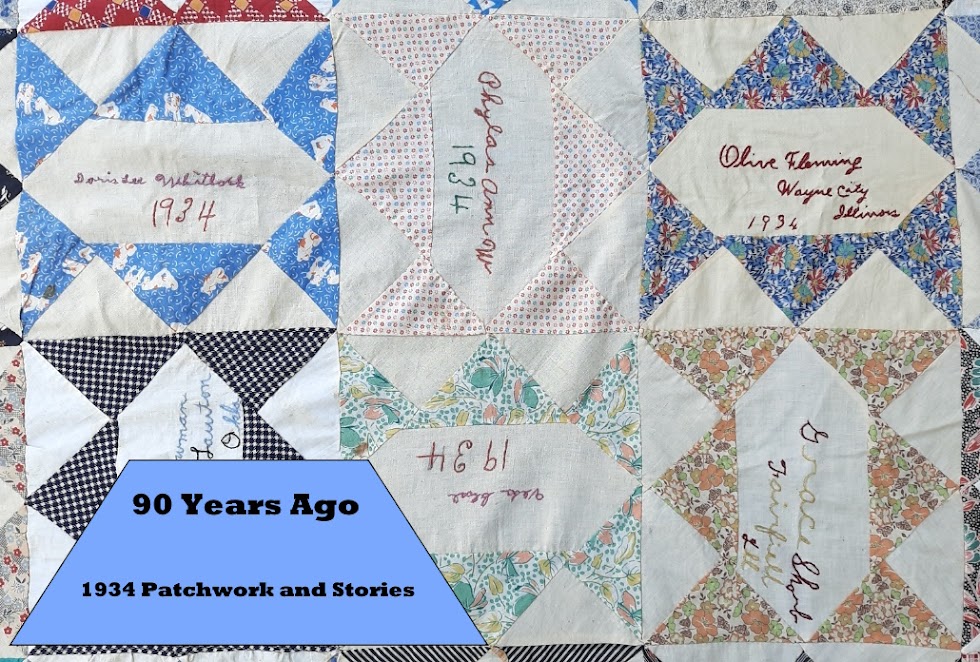Maggie Griffin was the second eldest of nine children and her father died when Maggie was thirteen. Maggie married Benjamin Shaw and had five children of her own. The births of Maggie's children were spread over nineteen years; when Maggie made this quilt block her eldest daughter Mabel was celebrating her first wedding anniversary and her youngest daughter Agnes was just three years old.
Maggie Shaw, like the other women in Malaga, would have spent much of her time at home on the sewing machine. Singer Sewing machines were at the top end of the market but faced fierce competition from the 'home brands' of the mail order companies like Montgomery Wards and Sears. The majority of sewing machines manufactured in the 1920s were treadle or hand crank models but electric motors could be added later.
Maggie may have had the little book "How to Make Children's Clothes the Modern Singer Way" (1930 edition, 25 cents). If she did she would have pondered on the following "practical instruction and valuable suggestions ready for instant use."
“This book is designed to make sewing for children easy, to
make the work interesting, and to encourage those who sew for children to
appreciate the importance of correct and becoming attire, thus helping in a
silent way to build a foundation of good taste and a sense of fitness for the
child that will later prove an asset, economically and socially.
“Authorities disagree on the quantity of garments necessary
for a baby’s layette, but all agree that beautiful cleanness is absolutely
necessary. Therefore it is better to
have plainer and less expensive garments, but to have enough to make
immaculateness certain.
“There are a few times in the year when a new dress seems a
necessity. The first day of school is
one. Children bounce off to school with
alacrity when their clothes are new and in keeping with the occasion. Mothers too are filled with satisfaction and
pride in knowing that their little folks are correctly attired.
“Play clothes should be provided so that the school clothes
may be taken off and kept in good condition.
Mothers can protect themselves and their children by making a plan and
interesting their children in adhering to it; that is, to have certain outfits
for school and others for play, that they may always be dressed correctly for
both.
“Plaited (pleated) skirts, which have been popular for a
quarter of a century for school girls, will undoubtedly continue so for a very
long period of time, because plaited skirts seem to be absolutely in keeping
with the jauntiness that is associated with a girl of school age.
“Party dresses are never in good taste in the
classroom. In this age of democracy no
girl desires to show by her clothes that she is in a better financial condition
than her schoolmates. That in itself is
considered bad taste.









Oh my goodness! Interesting reading :-)
ReplyDeleteToo bad if you didn't like sewing, it was just part of being a mother (along with cooking, cleaning and performing charitable acts).
DeleteGee, I blogged about the same booklet! https://theliteratequilter.blogspot.com/2016/12/how-to-make-childrens-clothes-modern.html?m=1
ReplyDeleteSnap! I can't remember where I got my copy. I love the way that making clothes was a moral activity - I guess if you weren't much good at sewing your children turned out to be villains. ;)
Delete